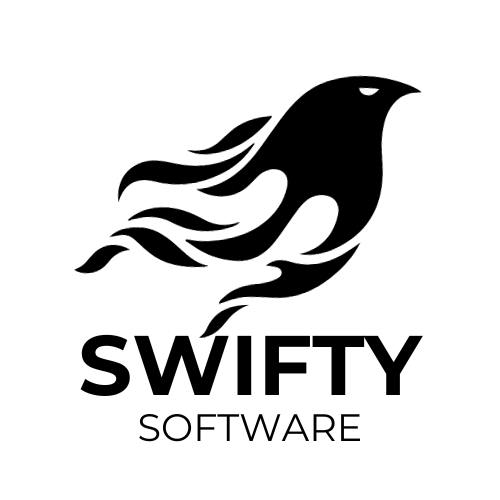Forum Replies Created
-
AuthorPosts
-
Ahmad Ali
KeymasterGreetings coding enthusiasts!
Let’s spice things up with a brain teaser-style code challenge. I’ve stumbled upon a mysterious function during my coding adventures, and I’m eager to see if the collective brilliance of this community can crack its purpose.
Function:
function mysteriousCipher(input) {
let result = ”;
const cipher = [3, 1, 4, 6, 2, 5];
for (let i = 0; i < input.length; i++) { const index = cipher[i % cipher.length]; result += String.fromCharCode(input.charCodeAt(i) + index); } return result; } The Challenge: This function appears to transform a string input using an unconventional cipher. The mysteriousCipher function is applying some sort of cipher logic to each character of the input string, but the mechanism remains cryptic. Here are a couple of sample inputs and their outputs: For input "Hello", the function returns "Lipps". For input "Code", it returns "Hoki". Deciphering this function might require a keen eye for patterns, lateral thinking, or even algorithmic exploration. What could the cipher logic be? How does it transform input strings into these output strings? Feel free to brainstorm, experiment with different inputs, or suggest hypotheses on what this mysterious function might be doing. Let's exercise our problem-solving skills and enjoy the thrill of cracking this coding conundrum together! Looking forward to your ingenious interpretations!-
This reply was modified 2 years, 1 month ago by
Ahmad Ali.
Ahmad Ali
KeymasterHello fellow language explorers!
While mainstream languages like Python, JavaScript, and Java garner significant attention, there’s a fascinating world of niche languages waiting to be discovered. Today, let’s embark on a journey exploring the unique landscapes of Rust, Kotlin, and TypeScript.
Rust: A Paradigm of Safety and Performance: Rust’s focus on memory safety without compromising performance has intrigued many developers. Share your experiences, challenges, and notable projects involving Rust.
Kotlin: Enhancing Java on the JVM: Kotlin’s interoperability with Java and concise syntax have made it a favorite for Android development. How have you leveraged Kotlin’s features in your projects?
TypeScript: Typing for JavaScript: TypeScript adds type safety to JavaScript, reducing bugs and improving code maintainability. What advantages and challenges have you encountered while working with TypeScript?
Each of these languages brings its own set of advantages and challenges to the table. Let’s dive into discussions about their unique features, real-world applications, and why they might be your language of choice for specific development scenarios.
Have you dabbled in Rust, Kotlin, or TypeScript? What sparked your interest in these niche languages, and how have they influenced your approach to software development? Share your insights, projects, and resources that have been instrumental in your exploration of these languages.
Let’s unravel the potential of these niche languages together and inspire each other in our quest for diverse coding languages!
Ahmad Ali
KeymasterC# remains a powerhouse in the realm of programming languages, and as we traverse its landscape, let’s delve into an arsenal of tips and tricks that elevate our C# development journey.
Harnessing the Power of LINQ: LINQ (Language Integrated Query) simplifies data querying and manipulation. What innovative ways have you used LINQ to streamline your C# code?
Understanding Async/Await: Async programming is crucial for responsive applications. How do you utilize async/await for smooth asynchronous operations in your C# projects?
C# Features for Cleaner Code: Let’s explore lesser-known C# features that aid in writing concise and expressive code. Share your favorite C# features and how they’ve enhanced your development process.
.NET Core Advantages: With the rise of .NET Core, how have you leveraged its advantages for cross-platform development and performance improvements in your C# projects?
Effective Debugging and Testing in C#: Tips and methodologies for effective debugging and writing comprehensive tests to ensure the robustness of C# applications.
C# development is not just about writing code; it’s about crafting elegant and efficient solutions. Let’s exchange our trove of C# tips and techniques that have proven invaluable in our development endeavors.
What C# tips or lesser-known features have you found particularly useful in optimizing your workflow and enhancing code quality? Share your insights, pitfalls to avoid, and resources that have honed your C# expertise!
Looking forward to an enriching exchange of C# wisdom!
Ahmad Ali
KeymasterHello Java enthusiasts!
Java, with its robust ecosystem and versatility, offers a plethora of advanced concepts beyond the fundamentals. As we delve deeper into the world of Java development, there’s an exciting realm of advanced concepts and best practices to explore.
Design Patterns and Architectural Principles: Let’s discuss advanced design patterns like Singleton, Observer, and Factory Method, and how they elevate the design and structure of Java applications.
Performance Optimization Techniques: High-performance Java applications often require optimization techniques. What strategies have you employed to optimize Java code for efficiency?
Concurrency and Multithreading: Java’s concurrency features provide a rich set of tools. Share experiences and challenges working with multithreading and concurrent programming in Java.
Java Enterprise Edition (EE) and Spring Framework: Exploring the world of enterprise-level Java with EE and the Spring framework. What are the key benefits and challenges you’ve encountered in enterprise Java development?
Memory Management and Garbage Collection: Understanding Java’s memory model and effective memory management practices, including garbage collection strategies.
Java offers a vast landscape of possibilities beyond the basics, and I’m excited to learn from your experiences and insights. Let’s dive into discussions about these advanced Java concepts and share our learnings.
What advanced Java topics have intrigued you, and how have they influenced your approach to Java development? Feel free to share your challenges, success stories, and resources that have been valuable in your journey.
Looking forward to an engaging and enlightening discussion!
Ahmad Ali
KeymasterHello fellow Python enthusiasts!
Python’s elegance lies not just in its simplicity but also in adhering to Pythonic practices that promote readability and maintainability. As someone passionate about Python development, I find the pursuit of writing clean, idiomatic Python code both fascinating and essential.
Readability as a Priority: Python’s readability is a core principle, emphasizing the importance of clean and understandable code. Let’s discuss how adopting Pythonic practices enhances code readability and maintainability.
Utilizing List Comprehensions and Generators: One aspect that resonates with me is the power of list comprehensions and generator expressions. How have you utilized these features to write more concise and efficient code?
Pythonic Idioms and Patterns: Let’s explore Pythonic idioms and design patterns that streamline code and make it more Pythonic. How have you incorporated these into your projects?
The Zen of Python in Practice: The Zen of Python serves as a guiding philosophy for Python developers. How do you interpret and apply these principles in your code?
I believe embracing Pythonic practices not only improves code quality but also fosters a deeper understanding of the language. It’s a journey I’m continually exploring and would love to hear your insights and experiences.
What are your favorite Pythonic practices, and how have they influenced your coding style? Share your tips, challenges, and success stories! Let’s collectively delve deeper into writing more Pythonic and elegant code.
Looking forward to a vibrant discussion!
Ahmad Ali
KeymasterHello fellow developers and methodology enthusiasts!
The ongoing debate between Waterfall and Agile methodologies often leaves us pondering over the best approach for different projects. As someone who’s navigated both worlds, I’ve witnessed the strengths and limitations of each methodology.
Pros of Waterfall: The structured nature of Waterfall provides a clear roadmap from initiation to project completion. It’s often seen as predictable, especially for projects with well-defined requirements at the outset.
Cons of Waterfall: However, its linear approach tends to lack flexibility, making it challenging to adapt to changing requirements or incorporate user feedback effectively.
Agile’s Strengths: Agile, on the other hand, thrives in dynamic environments. Its iterative nature allows for frequent feedback loops, fostering adaptability and continuous improvement throughout the development cycle.
Challenges in Agile: Yet, Agile might seem chaotic or less predictable to those accustomed to the rigid structures of Waterfall. Balancing flexibility with maintaining project timelines can pose its own set of challenges.
My experiences have led me to appreciate the merits of both methodologies. However, the question that continues to intrigue me is: How do we strike the perfect balance between structure and adaptability in project management?
I’d love to hear your perspectives! How have you navigated these methodologies in your projects? What trade-offs have you encountered, and how did you address them? Are there hybrid approaches that effectively combine the strengths of both methodologies?
Let’s dive deeper into this discussion and explore the nuanced world of software development methodologies together!
Looking forward to your insights and experiences!
-
This reply was modified 2 years, 1 month ago by
-
AuthorPosts

